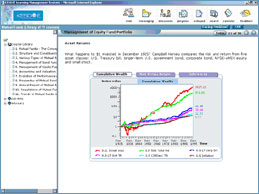
Prof.
G. Sethu, holds a B.Tech in Mechanical Engineering from Indian Institute of Technology
(IIT), Kharagpur, M.Tech in Mechanical Engineering from IIT, Chennai and a Doctorate
in Management from Indian Institute of Management (IIM), Ahmedabad. He has over
twenty-eight years of experience in administration, research, consultancy and
teaching. He is a professor at the Indian Institute of Capital Markets. He has
served as a member of Indian Administrative Service and was a faculty member in
finance at XLRI, Jamshedpur for five years.
At XLRI he taught several
courses in finance (corporate finance, management control, mergers and acquisitions)
in the MBA course. He was also involved in executive teaching and administration
besides being the coordinator of Centre for Rural Management. He was a member
of DPEP evaluation team set up by the Ministry of HRD. He joined the UTI Institute
of Capital Markets as a professor in 1996 and was the dean during 1997-2004.
He is a visiting faculty at IIM, Ahmedabad and IIM, Indore. He has been a
visiting faculty member at IIM, Kozhikode, T. A. Pai Management Institute, IIT,
Mumbai, Symbiosis Institute of Business Management and several other institutes.
He has been a guest faculty member in the executive education programmes at IIM,
Bangalore, National Police Academy, National Insurance Academy, Sate Bank of India,
Lal Bahadhur Shastri National Academy of Administration, National Academy of Audit
and Accounts, Jawaharlal Nehru Institute for Development Banking, and several
other institutions.
He has participated in and coordinated consultancy
assignments for government and foreign organizations. He is a member of a number
of committees in the financial markets. He is a member on the board of directors
of OTCEI Securities Limited, UTI Funds Management Limited, ABN AMRO Trustee Limited,
and UTI Technology Services. He has served on the board of SBI Funds Management
Limited and UTI's Asset Management Committee. He is a member of University of
Mumbai's Ad-hoc Board of Studies in Banking and Finance and is an external examiner
for University of Wales validated schemes of study. He is on the editorial boards
of finance journals and is a reviewer for a number of journals in India and abroad.
His areas of research and teaching interests are financial strategy, financial
markets and fund management industry. |

